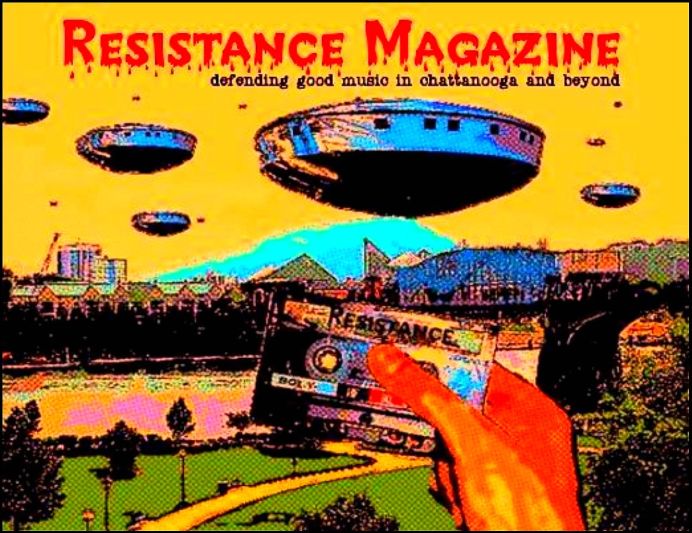I’ve thought about Chattanooga’s forgotten music scene for a while now; a time when jazz and blues could be heard all the way down MLK Blvd., or as it was previously named, Ninth Street. Ever since I read an article in the local paper a number of years ago about the number of clubs that lined either side of this now struggling street, I was eager to learn about the famous musicians that traveled hundreds of miles just to get the chance to play here and those who were born here, or had some sort of connection with Chattanooga, going on to fame and fortune.
Living here all of my life and seeing the influx of people who have moved here from so many different places around the country and the world, especially in the last ten years or so, gave me a new perspective of the Scenic City; one that forced me to appreciate its rich history, not just its role in the Civil War but in American culture in general, from its business ventures to its impact on the arts. It forced me to take a second look around me, to embrace all of which I had taken advantage when I was younger.
It also forced me to look even harder at this city’s negative aspects, like its vast amount of political and business corruption, its constant problems with public education, its firm hold on the “southern political” way of doing things and its uncanny ability to look the other way when it comes to picking and choosing its charitable causes and city improvement plans.
So many times throughout its history, this town has come so close to becoming something more than simply a stop on the way to Nashville, Knoxville, or Atlanta. But, for reasons I don’t quite understand, it just cannot get past its shortsightedness.
MLK Blvd., despite several attempts at revitalization, still limps along, though promises have been made to better the once-famous strip. The Tennessee Aquarium, The Walnut Street Bridge, the North Shore, the 21st Century Waterfront Project as well as numerous restaurants and tourist attractions have all helped incredibly in the downtown renaissance.
But, as a city, we have a knack for trying to  compete with Atlanta and other big cities. Who will fill all of these multi-million dollar condos invading the downtown area? For those of us who live downtown, working hard to re-beautify old neighborhoods, as well as those who work and play here, where are the other necessary elements needed to preserve and move forward with this movement? Grocery stores (Green Life and Beuhler’s don’t count), music stores, clothing stores, and everything else that makes a true community is needed and so far, all that’s being built are more condos, and in the middle of a national recession, no doubt.
compete with Atlanta and other big cities. Who will fill all of these multi-million dollar condos invading the downtown area? For those of us who live downtown, working hard to re-beautify old neighborhoods, as well as those who work and play here, where are the other necessary elements needed to preserve and move forward with this movement? Grocery stores (Green Life and Beuhler’s don’t count), music stores, clothing stores, and everything else that makes a true community is needed and so far, all that’s being built are more condos, and in the middle of a national recession, no doubt.
Resistance Magazine is about more than just supporting good local music. It’s about taking a stand against the corruption that plagues this city; from our local government to private companies.
Chattanooga is a great city but instead of being great for only an elite few or for those who are here on vacation, let’s work to make it great for everyone who lives here. It’s time to get past the social and economic barriers that seems to have kept this town from reaching its peak potential and to embrace its rich past and learn from it.
To become the diverse, culturally rich, city its meant to be, we have to support local businesses, local flavor, and local talent. Supporting local music and venues is a good place to start.
You can read about Chattanooga’s rich music history here:
http://www.chattanoogapulse.com/vnews/display.v/ART/2007/06/27/46815cdcda649?in_archive=1
Subscribe to:
Post Comments (Atom)



0 comments
Post a Comment